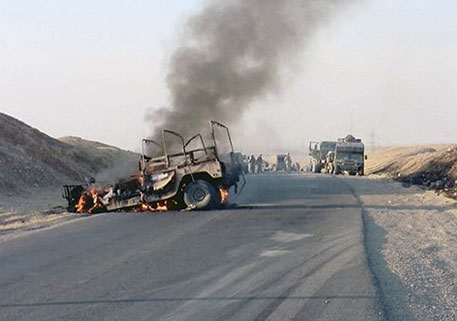 The Department of Veterans Affairs is charged with not only providing world-class health care, services and benefits to veterans but also keeping them informed. However, too many veterans find VA notice letters difficult to understand, needlessly lengthy and packed with jargon that would challenge the most seasoned code breaker.
The Department of Veterans Affairs is charged with not only providing world-class health care, services and benefits to veterans but also keeping them informed. However, too many veterans find VA notice letters difficult to understand, needlessly lengthy and packed with jargon that would challenge the most seasoned code breaker.
But the DAV-backed Clear Communication for Veterans Claims Act (H.R. 7816) would ensure VA notice letters are concise and understandable and they provide sufficient information for veterans to make informed decisions about their claims for VA benefits.
The bill would compel the VA to work with third-party, nonpartisan organizations that would study the notice letters and provide recommendations. It would also require the VA secretary to report to Congress and implement any recommendations.
“VA letters and notices to veterans and their families have become bogged down with legal language,” DAV Deputy National Legislative Director Shane Liermann told lawmakers at an April hearing of the House Veterans’ Affairs Subcommittee on Disability Assistance and Memorial Affairs. “It is clear that letters are too long, too complex and frustrate veterans attempting to access their earned benefits.”
Lawmakers on the panel agreed. Rep. Morgan Luttrell, who chairs the subcommittee, admitted he struggled to decipher letters he received from the VA.
“The notice letters are supposed to be easy to understand, but the directions are like walking through a maze,” said Luttrell, a retired Navy SEAL.
The VA defended what many say is confusing language in the notifications, with Deputy Chief General Counsel Brian Griffin telling the congressional panel that since claim letters “do get litigated,” they take care to explain their decisions.
But painstaking legal precision comes at a cost for the men and women who served.
“DAV recommends VA take a new look at their letters by concentrating on the language for the reader and not the legal requirements,” Liermann added. “We suggest using focus groups populated with veterans and veterans service organizations to assist in developing language that is understood and clearly conveys information and the intent of the letter.”
The bill cleared the House Veterans’ Affairs Committee in July and is awaiting a vote on the House floor.
Join DAV CAN (Commander’s Action Network) at davcan.org to receive updates on legislation affecting veterans and their families.






